ON BOARD visits Sweden
Edited on
09 March 2020The second meeting of the ON BOARD project was held in Halmstad (15-16-17 May 2019). Following the transfer methodology designed, each Transnational Meeting will focus on a key stakeholder of the Education Innovation Network and on a specific transfer step to make the transfer of the Good Practice possible.
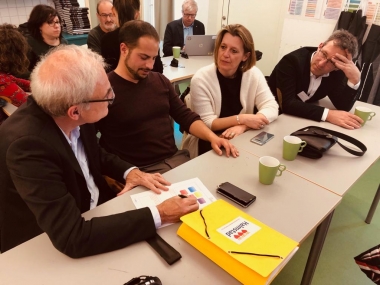
KEY STAKEHOLDERS ANALYSED
§ How easy it is for you to incorporate non-school actors in your teaching projects? What are main problems you encounter? How did you overcome them before?
§ Is it easy for your school to incorporate technology in the teaching-learning process?
§ Do you have resources for training of teaching staff in new methods and tools? Who provides them, the school, the Municipality?
According to the results of the session (and also the comments gathered during the interviews to local agents in Phase 1 visits) the typology of difficulties that teachers identify can be grouped as follows:
A) Administration and legal framework
§ Limited flexibility to incorporate new contents and methods in the curricula
§ Limits to innovative role of schools and the possibility of experimenting
§ Lack of freedom for hiring teaching staff and non-teaching staff
§ Different capacity to open schools to cooperation with other stakeholders, i.e. university, social organisations, cultural institutions, families…
§ Centralised and standardized education system and curricula versus the reality of the local/district context
B) Staff skills and mind-set
§ Difficulties to propose training on new topics, for example, technology and digital tools, psychology, pedagogy, arts
§ Need to develop an updated life-long learning programme for teachers
§ Low interest or motivation to do things differently
C) Capacities of teaching staff to assume new proposals
§ Teachers overloaded with their professional duties
§ Excessive administrative and reporting burden for schools headmasters
§ Lack of technical and economic resources
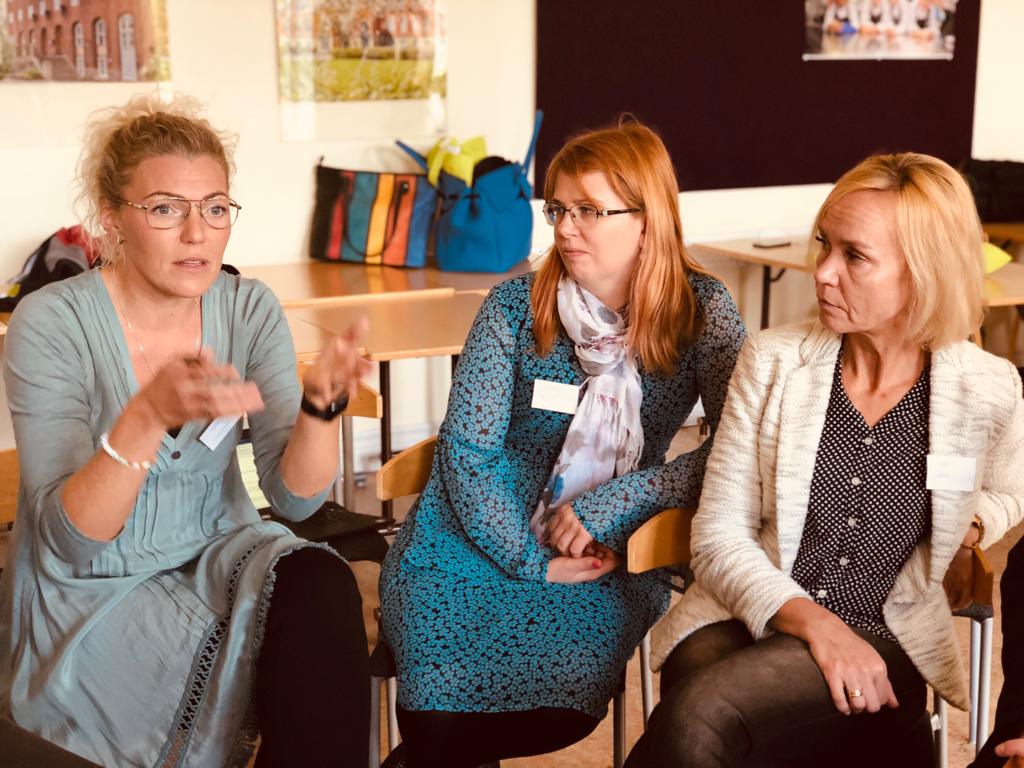
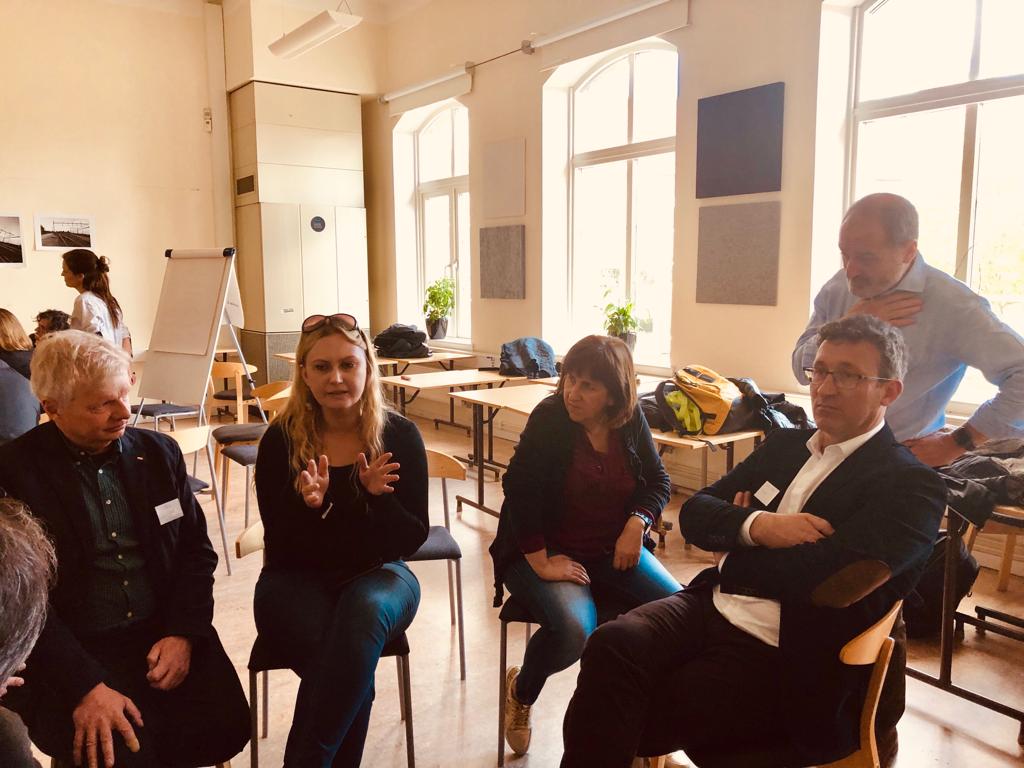
TRANSFER STEPS: PILOT PROJECTS & DEFINING LOCAL EIN STRUCTURES
Before attending the meeting, all project partners were asked to describe and share projects they are implementing in their primary and secondary schools and that, according to a predefined set of criteria, following Viladecans’ Good Practice, were considered as innovative, namely:
- Promoting an integrative approach and co-responsibility of all education stakeholders
- Incorporating technology and connectivity in the daily teaching-learning process
- Creating new collaboration relationships with non-school local agents
- Building capacities of agents involved
The pool of good practices constitute the beginning of an ON BOARD Network Basket of Pilot Projects where partners cities can pick, adapt and reuse for their own local education purposes. At the meeting session in Halmstad all project partners, including the GP city, participated in a Market Place of the Educational Innovation Projects.
Walking around the room, they asked for details of other cities’ projects and picked the ones that they considered to be more suitable for their local context and within their possibilities. Then, they dedicated some time in individual city groups to work on how and who should implement these projects beginning of the school period, August-September 2019. All partners will do the first piloting steps during the ON BOARD network timeline so as to start running their Educational Innovation Network.
Halmstad meeting also helped to start defining the structure of the Educational innovation Networks in each partner city based on their local contexts and needs. Partner cities presented how they plan to structure their networks:
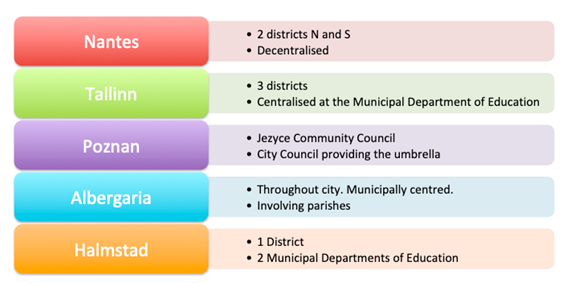
LEARNING NEW “GOOD PRACTICES”
Over the course of three intense days, a series of projects and experiences at all educational levels were visited (from primary to the university), which provided the participants the chance to get inspiration and exchange ideas and knowledge.
Local Halmstad team introduced the group to their most innovative projects in education. Members of the ULG presented the Professional Learning Communities, the Real Classroom Lab (RCL) project and the Brain Gym at the Kattegattgymnasiet Upper secondary school. On Day 2, the ON BOARD group moved to the education centres where some of the initiatives previously explained were taking place.
The projects visited show forms of integrating innovative practices in the classroom in cooperation with external stakeholders and based on the scientific evidence. The University, tech innovation companies and Vinnova, the national-wide Swedish Innovation Agency are partners in these initiatives, and they link the contents taught in the classroom with the students’ real life and context.
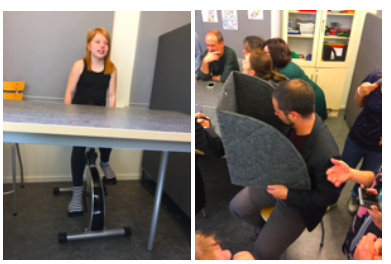
Submitted by s.mendez on
